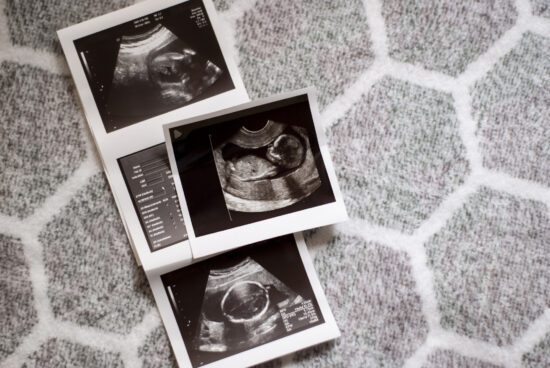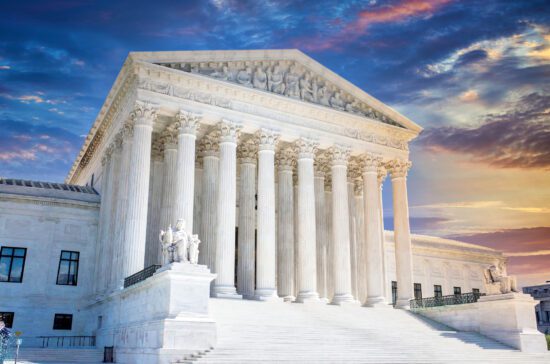As Eric Metaxas and others noted, what happened with the Planned Parenthood videos is a “William Wilberforce moment” in the culture. Wilberforce was the Christian man who looked into his Bible, saw that racism and slavery were evil reverse-images of the gospel, and dedicated his life to accomplishing what seemed culturally and politically impossible in late-1700s Great Britain: the abolition of the slave trade.
In a decisive moment that now lives in history, Wilberforce commanded the floor of British Parliament for over three hours doing nothing but reading gruesome horror stories of the African slave trade to the men that politically protected its continuation. He concluded with this sentence:
“You may choose to look away, but you can never say again that you did not know.”
On his deathbed in 1833, after a lifetime of being told abolition was impossible, he received word that Parliament had passed the Slavery Abolition Bill, granting freedom to all slaves in the British Empire.
In the last several months, videos of Planned Parenthood officials (the organization that performs over 40 percent of our nation’s abortions) harvesting and selling the body parts of dismembered infant corpses have surfaced to national outrage. But why are these videos causing such upheaval in a nation that has been legally pro-abortion since 1973? It’s because the reality of what abortion is (the murder of a human infant) is being thrust before us in a way that is hard to ignore.
This is our William Wilberforce moment. The stories have been viscerally told, and people may choose to look away, but nobody can ever say again that they did not know.
While it was surprising and encouraging to see hashtags like #PPSellsBabyParts, #DefundPP, and #UnplannedParenthood overrun the youth culture of social media platforms, wise pastors will realize we need more than hashtag activism. If we desire that his kingdom come on earth as it is in heaven, we need more than hashtags; we need church cultures that vibrantly embody a whole-life, pro-life ethic. For pastors to cultivate this, I see at least three indispensable practices.
1. In the words of Collin Hansen, we must “speak to persuade, not just to rally.” The temptation is to preach the fist-pounding, us-versus-them sermon against “all the wicked baby-killers” because we know it rallies a base and will earn us back-pats for “boldness”. But our calling isn’t to rally a base; it’s to persuade men (2 Cor. 5:11). When you preach an angry us-versus-them sermon, it alienates any of “them” that are present with honest questions. Pastors who brush past questions dismissively will themselves be dismissed. Here are a few of those questions or justifications and how the recent videos have equipped us to address them:
“Women’s rights.” Abortion advocates have long justified abortion by framing it in terms of women’s rights. One thing these videos are doing is making that defense seem childishly naive, at best, and intentionally deceptive, at worst. A person can point to video three and say, “What about the rights of the woman laying dismembered in a pie dish?”
“It’s just a clump of cells.” Abortion was legalized in 1973 before any technology that gave a clear look at the child inside the womb. “It’s just a clump of cells” was the lie we were told, and we believed it because we wanted to believe it. It was soothing to a screaming conscience: We’re not killing infants, we’re just removing clumps of cells. After these videos, no one can say this with a straight face. “Clumps of cells” do not have organs that can be harvested to save human lives. Lab technicians don’t point at “clumps of cells” and exclaim, “Another boy!”
“These babies are just like organ donors.” No they’re not. Organ donors get to choose to be organ donors after their natural deaths. They are not killed and chopped up without their consent in order to harvest their organs.
“My body, my choice.” Again, these videos expose this statement as absurd. It’s not just a woman’s body. We’ve now seen the other bodies in the pie dishes.
“They’re not all the way human.” The first step in committing any large-scale human rights atrocity is to linguistically dehumanize the victims. “They’re not all the way human” is what the Nazis said about Jews, nicknaming them “Untermenschen,” or “the subhumans.” The Colonial Slave Trade said black Africans were only three-fifths of a person; and now Planned Parenthood says that unborn children aren’t really babies until they emerge from the birth canal.
The label “extremists.” Planned Parenthood — in sheer terror at the national outrage — is trying to frame opponents as “extremists.” This is increasingly comical for three reasons. First, an estimated (and growing) half of our nation believes what Planned Parenthood is doing is wicked. Second, Planned Parenthood’s abortion policy would be illegal in 93 percent of the world. And third, Planned Parenthood said they wouldn’t continue do what they said they weren’t doing in the first place — receive money for harvested fetal organs. So, who’s the extremist?
2. Wise pastors must convincingly communicate a pro-life ethic as a gospel issue, not a political issue. My experience as a pastor of a millennial-dominated church in an urban area is that many younger people are secretly suspicious I wear two hats: local church pastor and local recruiter for the Republican Party. If pastors are not careful to root our pro-life ethic in the gospel (and not a political agenda), we risk confirming the suspicion and our reasoning being dismissed as driven by a political ulterior motive.
In a radically politically polarized culture, one of the most validating aspects of the gospel is that it’s politically confusing. A deep care for the poor, racial reconciliation, and love for the immigrant and sojourner — issues typically politicized as progressive — are embedded into our souls by the gospel. The belief in the sanctity and definition of marriage; the intrinsic value of all human life, including the unborn, elderly, and disabled; and biblical sexual ethics – issues typically politicized as conservative — are equally embedded into our souls by the gospel. It is exactly the fact that it transcends the existing categories that moves people to consider the possibility of the Christian gospel’s transcendence.
It’s remarkably persuasive to show that the same gospel that moves a person toward a “liberal” passion for racial reconciliation moves them toward a “conservative” pro-life ethic. Christians don’t oppose abortion because it’s a political issue, but because it’s a gospel issue. Abortion is the evil reverse-image of the gospel. Instead of saying, “I’ll die for you”, it says, “You die for me.”
To discern whether your church culture has a biblical pro-life motivation or merely political pro-life motivation, a helpful diagnostic question might be, “Is the message of our church consistently pro-life or only vocally pro-life when it intersects with a conservative (or liberal, depending upon your context) political agenda?” For instance, it strikes the average person as just a smidge disingenuous to boldly declare, “We are pro-life!” in one sentence and, “Send those non-American-speaking immigrants back to the country from which they came!” in the next.
3. We must affirm with our culture what we declare with our message. It’s possible to simultaneously preach true doctrine with our lips and utterly deny that doctrine with our culture. Think of the church that worships a man who was a homeless refugee but in which everyone avoids the homeless man that stumbles into a worship service. We can deny with our culture what we declare with our message, rendering the message almost impossible to believe. However, when a compelling culture affirms a clear message, even skeptical onlookers are moved to think, “I may not believe it yet, but if it produces this I wish it were true.”
Vibrant church cultures will show a pro-life ethic not just to be morally right, but existentially beautiful. Our churches, as “living epistles” and outposts of the Kingdom of God, can become places in which the beauty of a pro-life ethic can be experienced before it is even believed.
Our second adopted daughter is a black female with a birth defect born to a collegiate single mom. If you converted Planned Parenthood’s victims into a most wanted list, “black female with birth defect born to collegiate single mom” would be public enemy number one. The abortion-rights narrative for Felicity was, “All she can be is a burden, all she’ll do is ruin someone’s life prospects, and all she’ll have is misery.” But experiencing Felicity crucifies that lie, putting it to open shame.
Last night my heart almost exploded out of my chest as our gorgeous 9-month-old nestled her cheek against my shoulder, looked up into my eyes, and sighed “dada.” Yesterday, our family couldn’t post the pictures fast enough as she imitated her big sister’s dance moves. Despite three surgeries and countless nights struggling to breathe through her birth defect, when we walk into her nursery each morning, she invariably greets us with a smile that could wake the dawn, flails her arm in an attempted wave, and squeals, “haaaaaa!” (translation: “hi!”).
I assure you, once you’ve experienced that, you’re forever inoculated from a host of chillingly hollow abortion-rights narratives. Churches teeming with adoptions and foster parents, sacrificial compassion for pregnant teenagers and single moms, bestowed dignity upon the disabled, and honor for the elderly will be culture-shaking churches.
May the Lord raise up more churches with a gospel-saturated, pro-life culture that proclaims this from the rooftops, lives this in the everyday, and changes the cultures around them.







